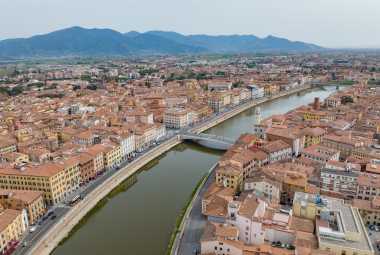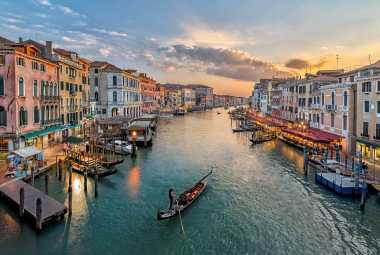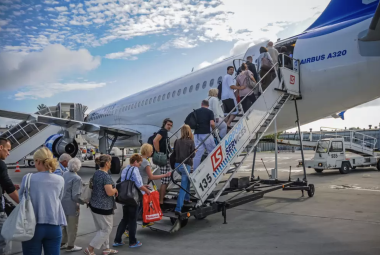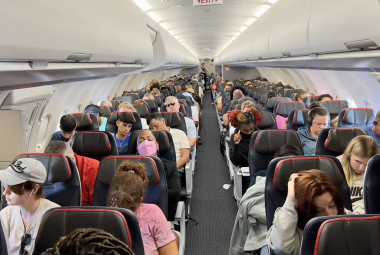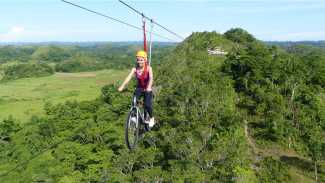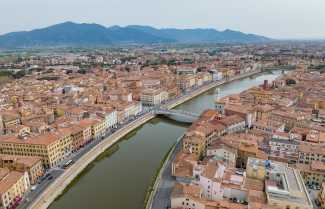Image by outliersguide.com
*Vacation Mode is a for-profit site. It contains paid banner advertisements that are generated and managed by a third-party network. This site also includes relevant affiliate links (both in the content and on the sidebar) all of which we do our best to clearly mark as such.
Are you tired of the same old routine of staying in generic hotels while traveling? Do you crave a more unique and immersive travel experience? Look no further than slow travel hotels. In this article, we'll explore the importance of slowing down and connecting with local culture when traveling and share some of the most captivating slow travel hotels around the world. Say goodbye to cookie-cutter accommodations and hello to authentic, meaningful journeys.
What Is Slow Travel?
Slow travel is a movement that promotes a more leisurely and immersive approach to traveling. It values quality over quantity and encourages fully experiencing and appreciating a destination, rather than rushing through multiple locations.
Slow travel allows for a deeper connection with local communities, exploration of off-the-beaten-path destinations, and engagement in meaningful cultural experiences. It emphasizes a slower pace, providing the opportunity to form deeper connections with the people, traditions, and natural beauty of a place. Slow travel prioritizes sustainability and responsible travel practices, promoting a more mindful and intentional way of exploring the world. By embracing slow travel, travelers can gain a deeper understanding and appreciation of the places they visit.
So, when planning your next trip, consider embracing slow travel and immersing yourself in the authentic experiences and hidden gems of your chosen destination.
What Are Slow Travel Hotels?
Slow travel hotels are accommodations that offer a more relaxed and immersive travel experience. Unlike traditional hotels that prioritize quick stays and sightseeing, slow travel hotels encourage visitors to take their time and truly connect with the local culture and surroundings. These hotels are often situated in scenic and off-the-beaten-path destinations, allowing guests to fully appreciate the beauty of the location at a leisurely pace.
Slow travel hotels provide a variety of amenities and activities that support a slower, more intentional approach to travel. They may offer opportunities for hiking, biking, or exploring the surrounding nature. Some hotels even organize cultural workshops or cooking classes, giving guests the chance to learn about the local traditions and cuisine.
Staying at a slow travel hotel can be a transformative experience, allowing travelers to unwind, reflect, and truly immerse themselves in their surroundings. It provides a chance to escape the fast-paced world and cultivate a deeper connection with both the destination and oneself.
The concept of slow travel can be traced back to the 17th century when wealthy European aristocrats would embark on "grand tours" of Europe, taking months or even years to explore different countries and cultures. These journeys were seen as a rite of passage and a way to gain knowledge and experience. Travelers would often stay in grand estates or palaces along the way, allowing them to fully immerse themselves in the local culture and lifestyle. Over the centuries, this concept of slow travel has evolved, with the emergence of dedicated slow travel hotels in recent years catering to modern-day travelers seeking a more meaningful and unhurried travel experience.
There is a Better Way to Travel: Slow Travel
Video by Nathaniel Drew
What Are the Features of Slow Travel Hotels?
Slow travel hotels offer unique features that cater to the needs of conscious travelers seeking authentic experiences. These hotels prioritize sustainability, support for local communities, and a connection with nature.
Here are some of the key features of slow travel hotels:
- Authentic Cultural Experience: Slow travel hotels immerse guests in the local culture through activities such as cooking classes, guided tours, and interactions with locals.
- Sustainable and Eco-Friendly Practices: These hotels minimize their environmental impact through initiatives like using renewable energy, reducing waste, and supporting local farmers and artisans.
- Support Local Communities: Slow travel hotels contribute to the local economy by employing locals, sourcing locally produced goods, and supporting community projects.
- Relax and Reconnect with Nature: These hotels are often located in serene natural settings, providing opportunities for relaxation, outdoor activities, and a chance to disconnect from the fast-paced world.
To find slow travel hotels, research and read reviews from fellow travelers, check for certifications and accreditations that indicate sustainable practices, consider the location and activities offered, and look for special deals and packages. Pro-tip: Slow travel hotels often offer unique accommodations like treehouses or eco-lodges that enhance the overall experience.
Why Choose Slow Travel Hotels?
In a fast-paced world where travel is often rushed and superficial, slow travel offers a refreshing alternative. And what better way to embrace this mindset than by choosing to stay in slow travel hotels? These accommodations not only provide a unique and authentic cultural experience, but also prioritize sustainable and eco-friendly practices. By supporting local communities and allowing guests to relax and reconnect with nature, slow travel hotels offer a truly enriching travel experience. Let's take a closer look at the reasons why you should consider choosing these types of accommodations for your next trip.
1. Authentic Cultural Experience
Slow travel hotels offer a unique opportunity to fully immerse yourself in an authentic cultural experience. To fully embrace this experience, follow these steps:
- Research and choose a destination known for its rich cultural heritage and traditions.
- Select a slow travel hotel that is situated in a local neighborhood rather than touristy areas.
- Engage with the local community by participating in cultural activities and events.
- Interact with the hotel staff to gain insights into local customs, traditions, and cuisine.
- Explore the surrounding area on foot or by public transportation to truly experience the local way of life.
- Eat at local restaurants and sample traditional dishes to savor the authentic flavors of the region.
- Visit local markets, galleries, and museums to learn about the history and artistic expressions of the community.
- Take part in cultural workshops, such as cooking classes or traditional craft sessions, to learn and appreciate local skills.
By choosing slow travel hotels, you can have an enriching and meaningful travel experience, connecting with the local culture while making a positive impact on the environment and supporting the local community. Some examples of slow travel hotels that offer authentic cultural experiences include Treehotel in Sweden, The Slow in Bali, Fogo Island Inn in Canada, Hix Island House in Puerto Rico, and The Brando in French Polynesia.
2. Sustainable and Eco-Friendly Practices
Sustainable and eco-friendly practices are crucial factors to consider when selecting slow travel hotels. These hotels prioritize minimizing their environmental impact and promoting sustainable tourism. Here are some steps to keep in mind:
- Energy conservation: Look for hotels that utilize renewable energy sources like solar or wind power and have energy-efficient lighting and appliances.
- Water conservation: Choose hotels that implement water-saving practices, such as low-flow showerheads and toilets, and utilize rainwater harvesting or graywater recycling systems.
- Waste reduction: Seek hotels that actively recycle and compost, minimize single-use plastics, and provide guests with responsible waste disposal options.
- Local sourcing: Opt for hotels that prioritize locally sourced and organic food, and support local farmers and producers.
- Biodiversity protection: Select hotels that participate in conservation efforts, protect natural habitats, and promote wildlife preservation.
By choosing hotels that prioritize sustainable and eco-friendly practices, travelers can not only enjoy their stay but also contribute to the preservation of the environment and support local communities.
In 2008, The Proximity Hotel, the world's first eco-friendly hotel, opened its doors in Greensboro, North Carolina. This LEED Platinum-certified hotel showcased innovative green practices, such as using 40% less energy than similar hotels and utilizing a rooftop solar array for electricity generation. The Proximity Hotel serves as a role model for sustainable hospitality, inspiring other hotels around the world to prioritize eco-friendly practices.
3. Support Local Communities
Supporting local communities is a crucial aspect of slow travel hotels. By choosing to stay in these hotels, travelers can actively contribute to the economic development and well-being of the local community. Here are some steps to take when selecting slow travel hotels in order to support local communities:
- Choose locally-owned establishments: Opt for hotels that are owned and operated by locals, as they are more likely to invest in the local economy.
- Participate in local activities: Engage in activities offered by the hotel that promote local culture, such as cooking classes, traditional performances, or guided tours led by local guides.
- Support local products and services: Make a conscious effort to purchase locally made products or dine at local restaurants to support the livelihoods of local artisans and businesses.
- Respect local customs and traditions: Be mindful and respectful of local customs, traditions, and norms to foster positive interactions and cultural exchange.
By following these steps, travelers can have a meaningful and impactful experience while also supporting local communities and preserving the authenticity of the destinations they visit. Remember, every small effort counts in making a positive difference in the places we travel to.
4. Relax and Reconnect with Nature
Slow travel hotels offer the perfect opportunity to relax and reconnect with nature. Here are some steps to consider when looking for these types of hotels:
- Research and Read Reviews: Conduct thorough research and read reviews from previous guests to gather insights about the hotel's proximity to nature and the overall experience.
- Check for Certifications and Accreditations: Look for hotels that have certifications or accreditations related to sustainable practices and environmental conservation.
- Consider the Location and Activities Offered: Choose hotels located in serene and natural environments, such as forests, mountains, or near bodies of water. Look for activities that allow you to engage with nature, such as hiking, birdwatching, or stargazing.
- Look for Special Deals and Packages: Many slow travel hotels offer special deals and packages that include nature-focused activities or experiences, making them more accessible and affordable.
Fact: Research has shown that spending time in nature can reduce stress levels, improve mood, and enhance overall well-being.
How to Find Slow Travel Hotels?
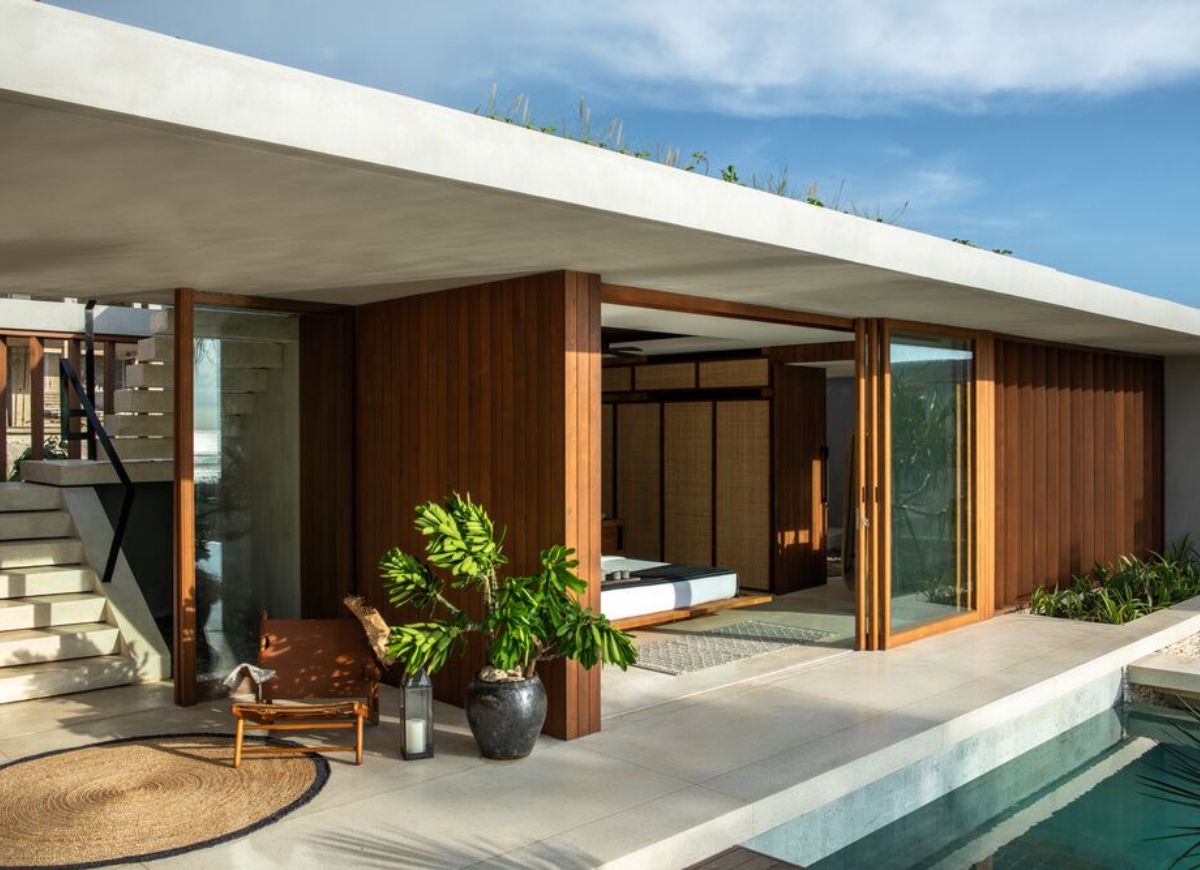
When it comes to slow travel, choosing the right accommodation is a crucial aspect. Slow travel hotels offer a unique experience that allows travelers to truly immerse themselves in the local culture and environment. But with so many options available, how do you find the best slow travel hotels? In this section, we'll guide you through the process by discussing the importance of research and reviews, certifications and accreditations, location and activities, and special deals and packages. By the end, you'll have the tools to find the perfect slow travel hotel for your next adventure.
1. Research and Read Reviews
When searching for slow travel hotels, it is crucial to conduct thorough research and read reviews in order to ensure a memorable and fulfilling experience:
- Start by utilizing online platforms such as TripAdvisor, Booking.com, or Slow Travel Alliance, where you can access comprehensive information and reviews from previous guests.
- Read reviews from various sources to gain a well-rounded perspective. Be sure to focus on recent reviews to ensure the information is current.
- Pay attention to specific details mentioned in the reviews, such as the hotel's atmosphere, quality of service, available amenities, and sustainability practices.
- Consider the overall rating and feedback from previous guests. Look for consistent positive reviews regarding the aspects that are important to you.
- Take note of any negative reviews and look for patterns. If multiple guests mention the same issues, it may be a warning sign.
By conducting thorough research and reading reviews, you can make an informed decision and find the perfect slow travel hotel that aligns with your preferences and values.
2. Check for Certifications and Accreditations
When searching for slow travel hotels, it's important to check for certifications and accreditations to ensure a high-quality and sustainable experience. Here are some steps to help you in your search:
- Research and Read Reviews: Look for hotels that have received positive reviews for their sustainability practices and commitment to slow travel principles.
- Check for Certifications and Accreditations: Look for hotels that have obtained certifications and accreditations, such as LEED (Leadership in Energy and Environmental Design) certification, Green Key certification, or membership in sustainable tourism organizations like the Global Sustainable Tourism Council (GSTC) or the International Ecotourism Society (TIES).
- Consider the Location and Activities Offered: Choose a hotel that is situated in a sustainable destination and offers activities that align with the principles of slow travel, such as nature walks, cultural experiences, or local community engagement.
- Look for Special Deals and Packages: Some hotels may offer special deals or packages that focus on sustainability or slow travel. These can be a great way to get a unique experience at a discounted price.
By following these steps and checking for certifications and accreditations, you can ensure that you choose a slow travel hotel that aligns with your values and provides a sustainable and authentic experience.
3. Consider the Location and Activities Offered
When searching for slow travel hotels, it is crucial to carefully consider the location and activities offered to ensure they are in line with your travel preferences and goals.
- Research the location: Look for slow travel hotels in destinations that offer unique cultural experiences, natural beauty, and opportunities for relaxation.
- Determine proximity to attractions: It is important to determine if the hotel is conveniently located near the activities and attractions you wish to explore.
- Availability of activities: Check if the hotel offers a variety of activities that align with your interests, such as hiking, biking, cooking classes, or cultural tours.
- Sustainability initiatives: Look for hotels that prioritize sustainable and eco-friendly practices, such as using renewable energy sources and minimizing waste.
- Support for local communities: Choose hotels that actively contribute to the local community by supporting local businesses and initiatives.
By carefully considering the location and activities offered by slow travel hotels, you can ensure a meaningful and enriching travel experience that aligns with your values and interests.
4. Look for Special Deals and Packages
When searching for slow travel hotels, it is important to look for special deals and packages to enhance your experience and save money. Here are some steps to follow:
- Research and Read Reviews: Look for hotels that offer special deals and packages by checking their websites or online travel platforms. Read reviews from previous guests to ensure the quality of the packages.
- Check for Certifications and Accreditations: Look for hotels that have certifications or accreditations for their sustainable practices or commitment to local communities. These hotels are more likely to offer special deals and packages.
- Consider the Location and Activities Offered: Choose hotels in locations that align with your interests and offer activities that you enjoy. Look for packages that include unique experiences or access to local attractions.
- Take Advantage of Special Deals and Packages: Once you have narrowed down your options, specifically search for special deals and packages on the hotel's website or by contacting them directly. These deals may include discounted rates, complimentary services, or bundled activities.
When booking a slow travel hotel, make sure to take advantage of any special deals and packages available to enhance your experience and create lasting memories.
What Are Some Examples of Slow Travel Hotels?
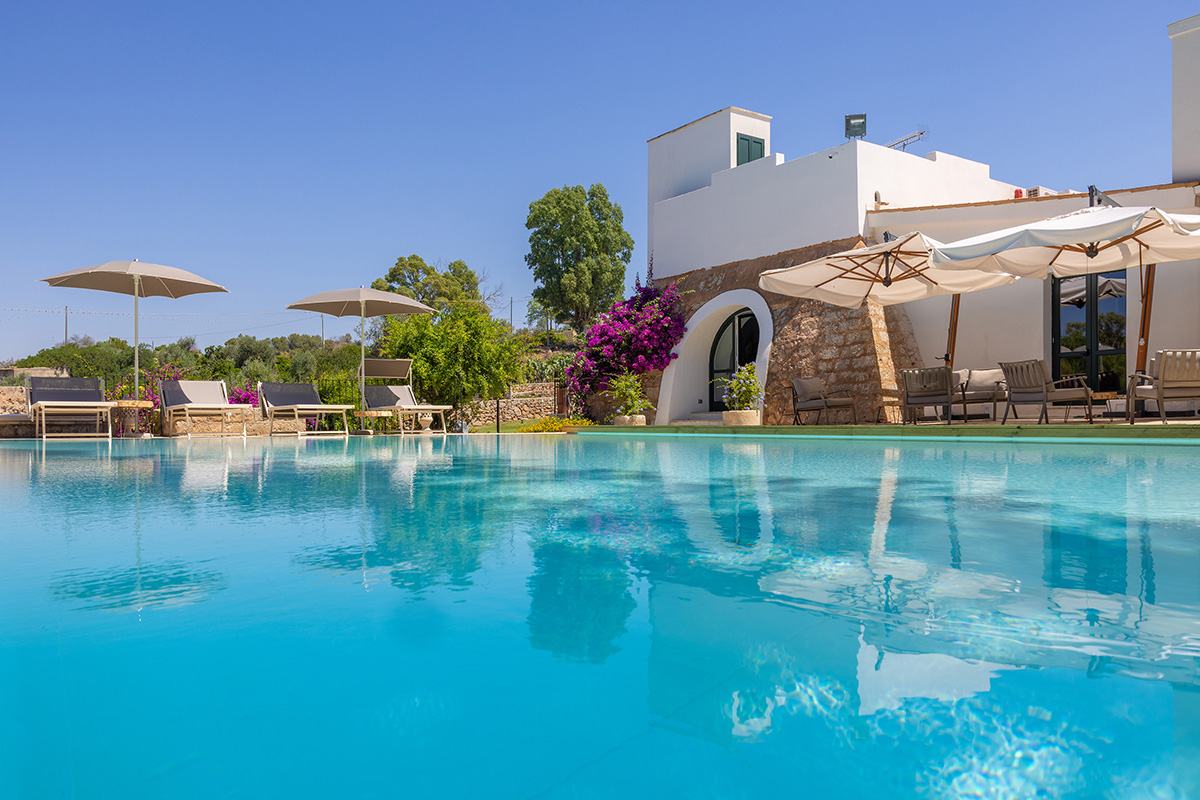
Slow travel allows us to fully immerse ourselves in a destination and experience it at a more leisurely pace. And what better way to complement this mindset than by staying at a slow travel hotel? These unique accommodations offer a more intimate and authentic experience, while also promoting sustainability and supporting local communities. In this section, we will highlight five exceptional examples of slow travel hotels from around the world, each offering its own distinct charm and connection to its surroundings. So pack your bags and get ready to embark on a slow, meaningful journey.
1. Treehotel in Sweden
Treehotel in Sweden is a one-of-a-kind destination that offers a unique slow travel experience surrounded by nature. To plan your visit, follow these steps:
- Research and Read Reviews: Gather information about Treehotel through websites, travel blogs, and online reviews from previous guests.
- Check for Certifications and Accreditations: Ensure that Treehotel has the necessary certifications for its eco-friendly practices and sustainable operations. Look for accreditations like Green Key or LEED certification.
- Consider the Location and Activities Offered: Treehotel is located in the forests of Harads, Sweden, providing a serene and secluded setting. Explore the range of activities available, such as hiking, wildlife spotting, and experiencing the Northern Lights.
- Look for Special Deals and Packages: Check for any special offers or packages available at Treehotel, which may include additional services or discounts.
Treehotel in Sweden was founded in 2010 by Kent Lindvall and his wife Britta Jonsson-Lindvall. Inspired by the idea of reconnecting people with nature, they created a collection of uniquely designed treehouses. Each treehouse is an architectural masterpiece, blending seamlessly with the surrounding forest. Treehotel has gained international recognition for its sustainable and eco-friendly practices, and its commitment to providing guests with an unforgettable slow travel experience. Visitors can enjoy breathtaking views, indulge in local cuisine, and immerse themselves in the tranquility of nature. Treehotel in Sweden truly embodies the essence of slow travel, offering a one-of-a-kind opportunity to disconnect from the fast-paced world and embrace the beauty of the natural environment.
2. The Slow in Bali, Indonesia
The Slow in Bali, Indonesia is a renowned slow travel hotel that offers a unique experience to its guests. Located in the vibrant neighborhood of Canggu, The Slow combines art, design, and hospitality to create a relaxing and immersive stay.
The hotel features spacious rooms and suites, each thoughtfully designed with a minimalist aesthetic and a focus on showcasing local craftsmanship. Guests can enjoy amenities such as a private pool, a curated vinyl collection, and a rooftop bar with breathtaking views of the surrounding area.
What sets The Slow apart is its dedication to slow travel principles. The hotel promotes sustainable and eco-friendly practices, including the use of organic and locally sourced ingredients in their restaurant and implementing recycling and composting to reduce waste.
To discover other slow travel hotels like The Slow in Bali, Indonesia, follow these pro tips:
- Conduct research and read reviews to gain insight into the hotel's philosophy and guest experiences.
- Look for certifications and accreditations that highlight the hotel's commitment to sustainability.
- Consider the location and activities offered, ensuring they align with your slow travel goals.
- Keep an eye out for special deals and packages to enhance your experience while staying within your budget.
Experience the tranquility and mindful travel at The Slow in Bali, Indonesia, where you can relax, immerse yourself in the local culture, and enjoy a sustainable getaway.
3. Fogo Island Inn in Newfoundland, Canada
Fogo Island Inn in Newfoundland, Canada is a renowned example of a slow travel hotel. Situated on a remote island, this eco-friendly establishment offers a unique and authentic cultural experience in the beautiful country of Canada. Guests can immerse themselves in the local community, participating in traditional activities such as fishing and boat building.
One of the standout features of Fogo Island Inn is its commitment to sustainable practices. The hotel is built using locally sourced materials and employs environmentally friendly technologies. It also supports the local community by hiring local staff and sourcing food from local producers.
The inn provides the perfect opportunity for guests to relax and reconnect with nature in the stunning Canadian landscape. Surrounded by breathtaking landscapes and pristine beaches, visitors can engage in outdoor activities like hiking and wildlife spotting. The peaceful atmosphere and lack of distractions allow for a truly rejuvenating experience.
To find slow travel hotels like Fogo Island Inn, it's important to research and read reviews from other travelers. Checking for certifications and accreditations can also ensure the hotel meets sustainable and ethical standards. Considering the location and activities offered, as well as looking for special deals and packages, can help in selecting the perfect slow travel hotel in Canada.
4. Hix Island House in Puerto Rico
Hix Island House in Puerto Rico is a prime example of a slow travel hotel. Located on the beautiful island of Vieques, this unique hotel offers a serene and eco-friendly experience for travelers seeking a tranquil getaway.
The features of Hix Island House align perfectly with the principles of slow travel. Each guestroom is designed to seamlessly blend with the surrounding nature, providing a minimalist yet comfortable experience. The hotel's architecture incorporates sustainable practices, utilizing solar power and rainwater harvesting.
Choosing Hix Island House allows guests to enjoy an authentic cultural experience. The hotel is situated near local communities, giving visitors the opportunity to immerse themselves in the vibrant Puerto Rican culture. Additionally, the hotel supports the local economy by sourcing products and services from nearby businesses.
Relaxation and reconnecting with nature are prioritized at Hix Island House. Guests can unwind in the hotel's lush gardens or take a leisurely stroll to the nearby beaches. The tranquil atmosphere promotes a sense of peace and rejuvenation.
To discover this hidden gem of a slow travel hotel, conduct thorough research and read reviews to ensure it aligns with your preferences. Check for certifications and accreditations to guarantee sustainable practices. Consider the hotel's location and the activities offered to ensure they match your desired experience. Lastly, look for special deals and packages that may enhance your stay at Hix Island House in Puerto Rico.
5. The Brando in French Polynesia
- Located in French Polynesia, The Brando is a renowned slow travel hotel that offers a unique and immersive experience.
- Step 1: Research and plan your trip to French Polynesia to visit The Brando.
- Step 2: Check the availability and book your stay at The Brando in advance.
- Step 3: Prepare for a relaxing and eco-friendly vacation at this luxurious resort.
- Step 4: Enjoy the tranquil surroundings and pristine nature of the private atoll where The Brando is situated.
- Step 5: Take part in various sustainable activities offered by the resort, such as snorkeling, kayaking, and guided nature walks.
- Step 6: Immerse yourself in the local culture by exploring the nearby villages and participating in traditional Polynesian activities.
- Fact: The Brando in French Polynesia is named after the legendary actor Marlon Brando, who once owned the private island where the hotel is located.
Frequently Asked Questions
What are slow travel hotels?
Slow travel hotels are accommodations that promote a more leisurely and immersive travel experience. These hotels focus on sustainability, authentic experiences, and a deeper connection with the local culture.
What makes slow travel hotels different from traditional hotels?
Unlike traditional hotels, slow travel hotels prioritize a slower pace of travel and encourage guests to take the time to fully experience their surroundings. They also tend to be more eco-friendly and provide opportunities for cultural immersion.
What kind of amenities can I expect in a slow travel hotel?
Slow travel hotels offer a range of amenities, including comfortable rooms, locally sourced and organic food options, and unique activities such as cultural workshops or nature walks. Some may also have spa services, fitness facilities, and other traditional hotel amenities.
Do slow travel hotels cater to specific types of travelers?
Slow travel hotels can appeal to a wide range of travelers, from solo adventurers to families and couples. They are particularly popular with those who value sustainability, authentic experiences, and a deeper connection with the local culture.
Are slow travel hotels more expensive than traditional hotels?
Prices for slow travel hotels can vary, but they are often comparable to or slightly more expensive than traditional hotels. However, the added value of unique experiences and a more sustainable approach to travel can make them a worthwhile investment for some travelers.
Are there slow travel hotels in every destination?
Slow travel hotels are becoming more popular, but they may not be available in every destination. However, many traditional hotels are incorporating slow travel elements into their offerings, so it is possible to have a slow travel experience at various destinations. It is always best to research and inquire about a hotel's approach to slow travel before booking.


